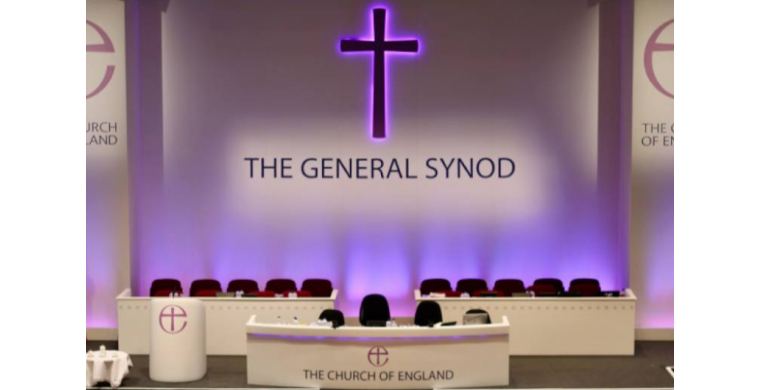General Synod: a watershed moment?
John Dunnett
Christian Today
06 July 2024
At the weekend, the Church of England's General Synod will meet in York. All eyes are on the 'big debate' on Monday, concerning Living in Love and Faith.
What proposals are being brought to General Synod?
In summary, the Church of England's General Synod is being asked: to endorse a direction of travel that continues to move away from our biblical and historic inheritance; to support the introduction of standalone services of blessings for same-sex couples; to support a timetable towards allowing clergy to marry their same-sex partners; and to support provision for orthodox Anglicans based on delegation rather than structural rearrangement.
These are proposals that the Church of England Evangelical Council (CEEC) cannot support because they go against Scripture and they are also indicative of a departure from Church of England doctrine. The CEEC stands with the other members of the Alliance (a broad coalition of leaders from networks within the Church of England) in upholding the existing biblical, historic doctrine of sex and marriage and opposing these proposals.
This is a watershed moment for the Church of England. If the General Synod approves these proposals (which we think is likely), we believe a change in doctrine will be initiated in an unlawful and unconstitutional way.
Isn't the provision outlined in Synod papers enough to protect those holding to the existing doctrine of marriage?
Some people have asked if the provisions for orthodoxy of delegated oversight outlined in the Synod papers could be supported by CEEC.
In short -- the answer has to be 'no' -- and for several substantive reasons:
A proposal for provision based on delegated oversight from orthodox bishops is treating the Prayers of Love and Faith as 'adiaphora' -- in other words -- we can agree to disagree on this (and in which case delegated oversight could be a proportionate response).However -- we do not believe this is an 'agree to disagree' issue because the Bible is clear that you cannot bless a sexually active relationship outside of male/female marriage.
It's a 'no' because the delegation of episcopal oversight/care depends upon the goodwill of the diocesan bishop agreeing to the delegation -- something which cannot be guaranteed as we go forwards. So, clergy and congregations might find themselves in the situation where they are not allowed to have this alternative oversight even if it is supposed to be available.
It's a 'no' because it does not address the crucial issue of 'doctrinal assurance'. Delegated oversight still leaves us in a room with two doctrines of sex and marriage -- we need some kind of doctrinal firewall between the two (hence CEEC's repeated insistence over the years that structural differentiation is essential)
It's a 'no' because this provision is not guaranteed indefinitely. We are seeing this 'non guaranteeability' being played out currently regarding the Settlement that was made in order to enable women to be bishops -- there are those who are now working to erode the delegated provisions that were made -- i.e. delegated is not the same as permanent.
Delegated episcopal oversight might sound reassuringly formal and strong, but in fact it sounds more than it is.
So what should we expect from Synod and beyond?
Last week, the Alliance sent a letter to the archbishops of Canterbury and York, plus the College of Bishops, warning that should these proposals be voted through, it would be forced to rapidly establish a de facto parallel province for those wishing to hold to the existing canons and doctrine of the Church of England. This is a major step and one that will not be taken lightly. However, for many, it will be the only way to enable those holding to the existing doctrine to be able to remain in the Church of England and preserve some degree of unity.
Based on the way the Synod has voted in the last few meetings, we assume that these proposals will be voted through. That will kick off the process of establishing the de facto province. With immediate effect, a pipeline for orthodox ordinands will be established. Alternative Spiritual Oversight, which CEEC launched in November 2023, will be available for those PCCs or clergy who hold to orthodox teaching and the existing doctrine of the Church of England. The Ephesian Fund will enable those, who in good conscience cannot continue giving to their revisionist bishop(s)/diocese to pay their parish share or give in support of orthodox ministry. These provisions will be developed further in the coming weeks and months.
CEEC continues to believe that permanent structural reorganisation is the only provision that will guarantee orthodox life going forwards. We will continue to work to make that a reality in the Church of England.
The Rev Canon John Dunnett is National Director of the Church of England Evangelical Council (CEEC).














